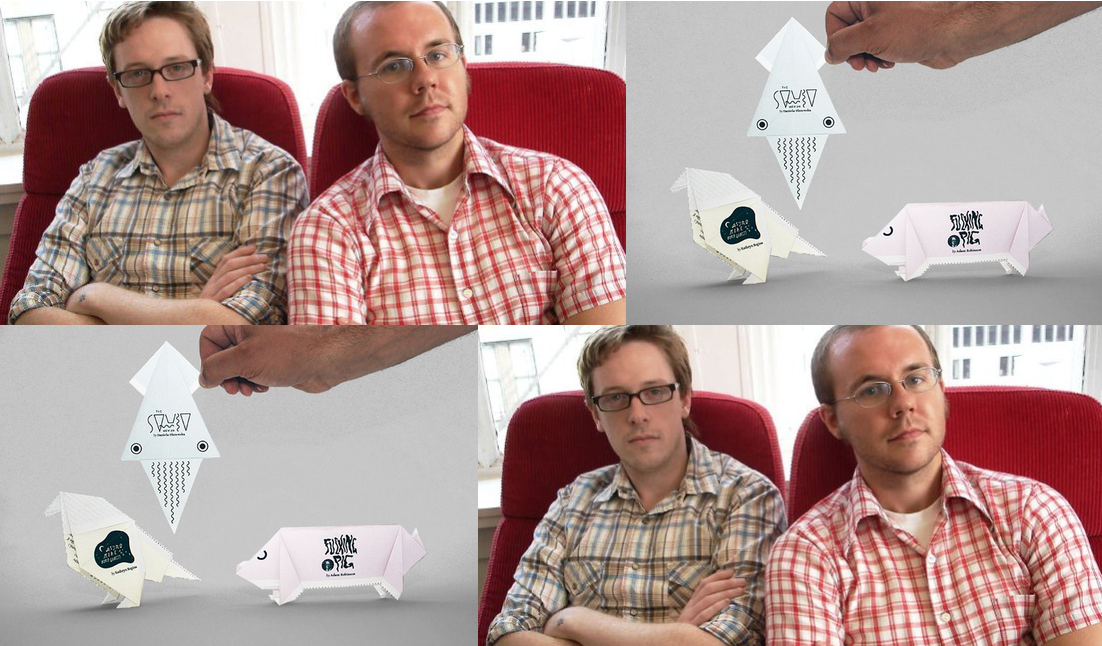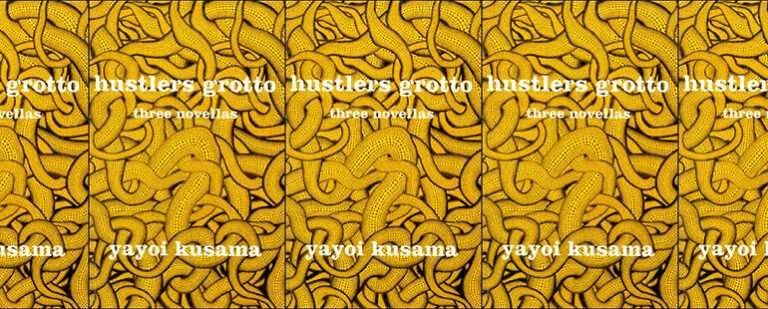Innovators in Lit: featherproof books

featherproof books is an indie press founded by Zach Dodson and Jonathan Messinger. They are based in Chicago, and their serious literary chops—recent titles include Patrick Somerville’s The Universe in Miniature in Miniature, Lindsay Hunter’s Daddy’s, Christian TeBordo’s The Awful Possibilities, Blake Butler’s Scorch Atlas, and Amelia Gray’s AM/PM—and genius eye for design have garnered them serious attention over the years. More importantly: do you know what a publishing yacht is? Or how a book can be turned into a mobile? No? Sit back and let Zach Dodson explain it all.
Laura: Featherproof is “an indie publisher dedicated to doing whatever we want.” What are some of the things that featherproof wants?
Zach: We’ve always dreamed of running the press from a yacht, desks out on the deck under umbrellas, drinks in hand, but we don’t get quite everything we want. I think mostly we’ve got that in the mission statement to remind ourselves that first and foremost: it should always be fun. I like the idea of the press following our interests. If we suddenly come across some poetry or a fantasy novel that we really want to do, we can do it. There’s something freeing in not being beholden to a certain type of book or project.
Laura: You’ve talked elsewhere about how featherproof got its start, but I’d be interested to hear how you see featherproof evolving. Is the goal to keep doing what you’re doing, or do you want the press to expand in new directions?
Zach: I see each new book as a new direction, really. We do so few a year, and spend so much time and care with each individual book, that it really takes over the whole press during the time we’re working on it. I don’t worry about direction or evolution so much. As long as I’m excited about what we’re doing then the experience is satisfying, and, I hope, that means someone else will be excited by it as well.
Laura: Featherproof certainly brings the heat by publishing awesome, beautifully-produced books—personal favorites include Patrick Somerville’s The Universe in Miniature in Miniature and Amelia Gray’s AM/PM— but I also appreciate that featherproof doesn’t seem afraid of fun. Take your Storigami series, for example. Can you talk a little about the featherproof sensibility?
Zach: Sure, I think that sense of experimentation and fun is really central to what we like about publishing. I was really inspired by my friends’ record label. When we started the press, we envisioned books that had the same excitement as our favorite records do. I think there’s really a lot of places left to go with books and book design. Many people treat the format as a foregone conclusion. Just because most books have been a certain way for a long time, doesn’t mean all books have to be that way. I think that there are still many things the book can do that have yet to be discovered. Desktop publishing put the book within the reach of so many more people, and I think design software is trending that direction as well, so I’m really excited to see what the future holds.
Storigami was a natural extension of our mini-books series – the foldable books you can download and print at home. They are like mini-books with more complicated folding. And actually I found the format lent itself to more the more flexible lyrical writing, so it allowed us to invite so writers we admire who work outside traditional narrative structures. Weirdos like Adam Robinson.
Laura: Featherproof also does really great stuff with design. The Universe in Miniature in Miniature not only looks great on a bookshelf, but can be turned into a freaking mobile. Even Storigami seems to be encouraging readers to appreciate the physical product and the design process. Was book-as-art-object always part of the featherproof ethos?
Zach: Design has always been a big part of the press. I make a living doing graphic design and it’s something that’s really important to me, personally. And fun. The things I most enjoy designing are things that I really care about. So when we’re putting out a book that I love, that’s my dream design job. The goal is always to make the book look most ‘like itself’ as possible. Sometimes it seems like book covers are just advertisements, like miniature billboards for books. The marketing detracts from the book itself. My goal is the opposite of that—the cover should feel like an inseparable part of the book. To that end, the author is involved heavily in the design process. It’s important to us that authors love how their books look, because a good book is not easy to write.
Laura: Have you ever tried something design-wise that failed miserably?
Zach: Oh, all the time. Good design is a process that involves regular failure. Most books I’ll design multiple covers for and go through various rounds of revisions. For Lindsay Hunter’s book, Daddy’s, my original design was to print the stories on little pieces of paper, rolled up to look like cigarettes. They’d come packaged in a ‘cigarette box’ book cover. We thought it was a good idea, and we even made mock ups and samples that were given away at AWP in Denver. But when I took the project to the printers it turned out to be way too expensive. Cost is something that we always have to keep in mind. So that forced me to come up with a new idea, and the Daddy’s tackle box was born, which I think fits the book much better, and integrates with the stories in a more interesting way. Most design failures lead to better solutions.
Laura: Over at Three Guys One Book, you discussed plans to start a small bookstore in Chicago called The Paper Cave. What’s happening with that?
Zach: The Paper Cave lives! I started it with a friend, Caroline Picard of the awesome Green Lantern press. The bricks and mortar store wasn’t feasible right now, but we did build an online store: thepapercave.com. I’ve gone on to other projects, but Caroline is still keeping the cave stocked with more and more amazing gems. I think it’s great because unlike big ‘amazonian’ online bookstores, it’s curated. This allows for some pretty radical discovery. Something to check out, for sure.
Laura: In an interview with the Chicago Tribune you mention the challenges of “reaching your audience through all the other noise the world is producing.” There’s so much going on out there—which strikes me as a sign of health, but understandably makes it harder for publishers to get—and hold—a reader’s attention. How does featherproof reach through the noise?
Zach: Quietly, I suppose. I think we do much less marketing than we used to. We do the social networks, we have lots of reading events. We try and find our audience whenever we can, but we’ve also found that the sort of people that like our books are also the people who seek small presses out. We’ve been lucky that a lot of people have managed to find us through all the noise. Once they do, then we get to have this awesome conversation with them. There’s always room for more, but we certainly don’t want to shout anyone down.
Laura: What’s been one of your most exciting moments or experiences with featherproof?
Zach: I really like opening the boxes when they come back from the printer. I like it when an author gets to hold their printed book for the first time. I like it when they read from it to people they care about at a book release. I like it when a review comes in that totally understands a book we’ve put out and maybe even teaches us all something about it we didn’t know or realize. I like seeing the books in bookstores, or libraries. Once or twice I’ve seen someone reading one on the train. That’s exciting to me.
Laura: What are some other publishers or literary entities you find inspiring?
Zach: So many. I feel in love early on with journals like The Minus Times and Open City. We were really inspired by Richard Nash’s Soft Skull and Akashic when we were starting featherproof. McSweeneys is an obvious influence. There are so many great small presses now. Dzanc is doing good things, I love Publishing Genius, and Small Beer, and Two Dollar Radio and Green Lantern, and NYRB, and Chin Music, and Dalkey, and Drag City, and Picture Box, and Sator, and Hobart, and a million others. There’s so many great ones popping up all the time. It’s constantly inspiring.
Laura: You live in Chicago. What’s the lit community like there?
Zach: Really great. There are a lot of writers here, and a ton of live readings. Everyone is really welcoming and supportive of other writers. It’s a great town to work in. I recently did a little write up of some of my favorite Chicago things at Poets & Writers: http://www.pw.org/content/chicago. That exhausted me, or I’d be more exhaustive. It’s basically a writer’s utopia. I’m not even joking.
Laura: What do you wish existed in publishing that hasn’t been invented yet?
Zach: Publishing yachts, naturally.


